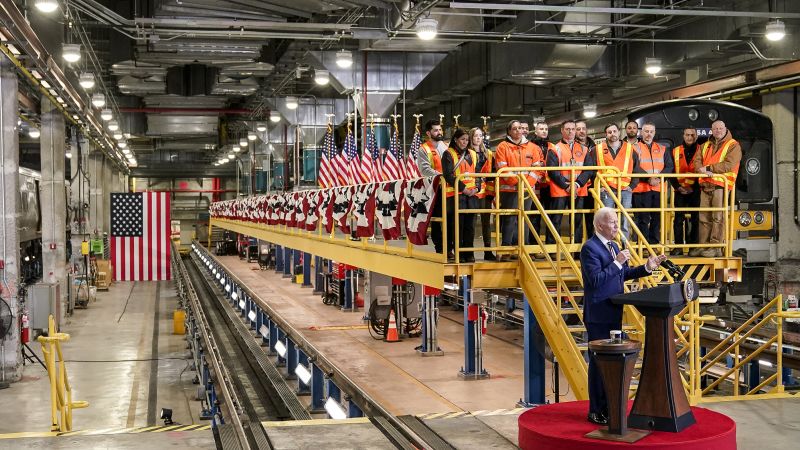The replacement for a crumbling underwater tunnel connecting New York City and New Jersey that carries up to 200,000 people daily just received the largest-ever federal transportation grant, according to Senate majority leader Chuck Schumer.
The $6.88 billion grant for the Gateway project includes constructing a new tunnel beneath the Hudson River parallel to the decaying North River tunnel, which is more than a century old and crumbling in the decade-plus since Superstorm Sandy flushed 3 million gallons of corrosive salt water into the tunnel.
The connection as it stands today is a narrow, two-track underwater bottleneck, in what Amtrak calls the country’s busiest stretch of mainline train track. What is mostly a three, four, and five track system throughout the Northeast Corridor funnels into two, single track tubes that connect New York and New Jersey. In all, some 24 trains per hour and 200,000 people daily (at pre-pandemic levels) pass through the tunnel, according to Amtrak.
The US Transportation Department estimates a final project cost of $17.18 billion.
The Gateway Development Commission, which is spearheading the project, calls it “the most urgent infrastructure program in America.”
The existing tunnel is key for local commuters and long-distance train travel alike.
“Traffic meltdown,” Amtrak CEO Stephen Gardner told Congress last month when asked what would happen if the current tunnel fails. “There’s huge impacts across the region because there’s insufficient tunnel and bridge capacity… And many, many residents and travelers rely on this connection.”
After the new tunnel is operational, the existing tunnel will be rehabilitated, ultimately allowing more volume and redundancy in case of an issue with one tunnel.
Gardner said the rail line and others have applied for $10 billion in federal grants, including for the Gateway project.
“It’s essential to the future of the Northeast Corridor,” he told Congress. “A future of rail transportation for passengers really across the entire east coast, and our connections to the west.”
The project has political complications. President Donald Trump opposed spending so much federal funding on the project – back when it was expected to cost only $13 billion – according to the then-Transportation Secretary, Elaine Chao.
Read the full article here





